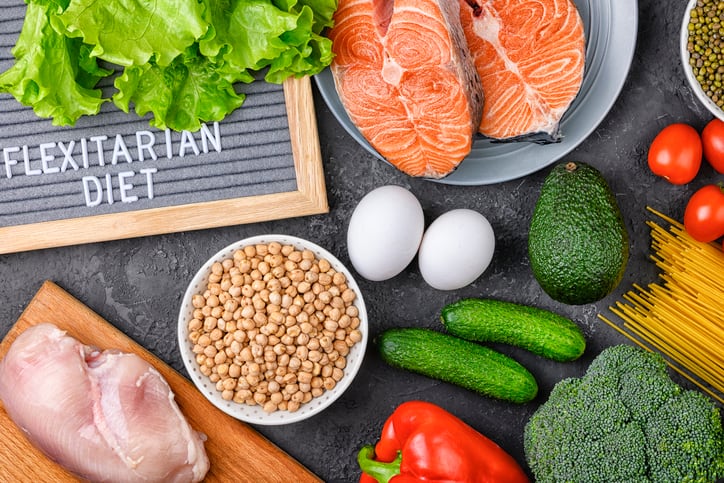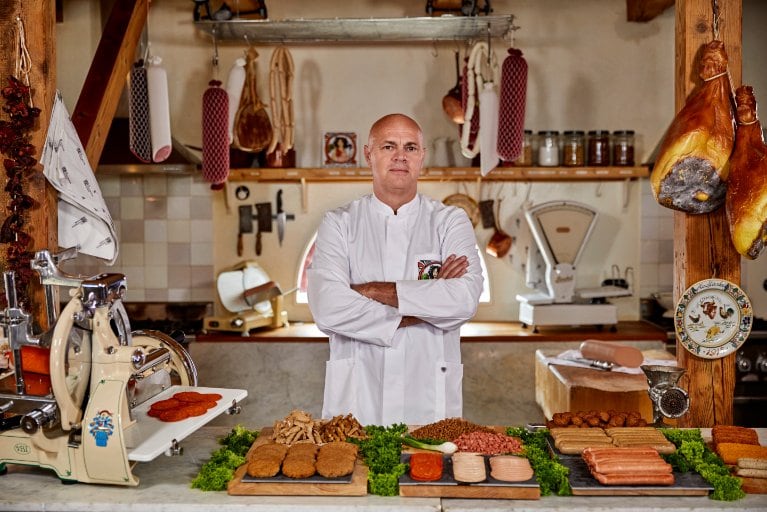Plant-based foods are growing fast across the globe and especially in Western markets where milk alternatives and meat substitutes are expected to deliver 6.4% and 6.5% CAGRs, respectively, between 2020 and 2025, according to according to Euromonitor’s Health and Nutrition Survey.
Strict vegans and vegetarians, though, constitute a small group with 4% and 6.4% of global consumers, respectively. Consumers who are restricting certain animal-based products, but not following a strict vegan/vegetarian diet constitute a much bigger group, accounting for 42% of consumers globally in 2020. This group represents an unrestricted middle ground between eaters of animal-based foods and non-eaters, known as flexitarians, that are looking to diversify their diets with more plant-based options and that are driving the plant-based boom.
Along with Australia, the UK is the largest country to declare: “I have an animal-product eating restriction” with over 45% consumers that responded positively in 2020, above the worldwide average.
Interestingly, though, while plant-based categories are growing, plant-based as a claim lags behind in all regions according to the report.
“Even though plant-based categories are growing, how to market and position these products remains a challenge,” it said. “While vegetarian claims are the most popular in the packaged food industry in Asia Pacific and Australasia, vegan claims enjoy higher penetration in Western Europe and North America.”
However, the plant-based term is the one likely to strike a chord with flexitarian consumers, suggested the report.
“The term ‘plant-based’ can be perceived as a more inclusive and appealing term. It aligns with the societal discourse of following lifestyles that reduce animal-based products but do not necessarily eliminate them completely from the diet. This can potentially be more appealing for the wider breadth of consumers that are reducing the amount of animal-based food they eat. Given the low penetration of plant-based claims across packaged food, this should be an area to explore further.”
The report added that analysing milk alternatives, vegan and dairy-free claims dominate the category at the global level. In meat substitutes, vegetarian claims lead in Western Europe, followed closely by vegan claims. Currently, in dairy alternatives (excluding milk alternatives), dairy-free claims are a step ahead with a higher digital share of shelf in 2019, followed by vegan claims. Plant-based claims remain in a niche.
White space opportunities
Besides claims and positioning, what are the next categories to develop in the animal-free space? Vegan fish and seafood is, together with cheese, the next big category in the pipeline, said Euromonitor.
Nestlé’s foray into the space “will help reach the masses and increase consumer awareness about these products. Vegan chocolate and sugar confectionery are set to gain ground,” it wrote. It also noted there are an increasing number of manufactures looking to find alternatives to dairy or gelatine, among other ingredients, and tap into the increasing demand for plant-based alternatives.
It added: “Sweet bakery (cakes and pastries) is a niche but full of potential as most of these products contain animal-based ingredients. Given the low availability of vegan options, it is expected that new manufacturers will jump into this category moving forward.”
Other food categories offering promise include non-dairy cream, cheese and sour milk products (e.g. kefir). They are still a niche but key areas to focus on during the coming years as the plant-based trend makes inroads into these categories, it said.
Baked goods is another area to keep in the spotlight and where innovation is set to come. Fully plant-based (without milk, eggs or butter) is a category with just a few players so far.





